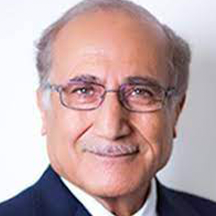On what basis do peace laureates win the Nobel Prize?
This is a question that comes to mind when unknown individuals with no track record to speak of win it.
Not that they do or do not deserve it, but it is a commonly eyebrow-raising question.
If one Googles the citations of the Nobel Peace Academy enunciating the reason for the win, one can determine a set of attributes.
These include courage against odds, a strong voice for peace when all others are warmongering and a vision to take preemptive action or positions that foster the cause of peace.
It is within this context, and even more, that I believe King Abdullah II of the Hashemite Kingdom of Jordan should win it.
Not only for his valor and full-throttle, uncurbed enthusiasm for peace and coexistence, but also in acknowledgement of the sacrifices Jordanians have made for the same goal.
Since his accession to the Hashemite Throne in February 1999, King Abdullah dedicated his efforts to bringing a successful outcome to the two-state initiative in historical Palestine.
He never hesitated, never wavered in his quest to achieve that.
His late father, King Hussein, and before that King Abdullah I exerted similar heartfelt efforts.
Both president Anwar Sadat of Egypt and Israeli Prime Minister Menachem Begin were given the prize after Camp David of 1979.
Palestinian leader Yasser Arafat, together with Yitzhak Rabin and Shimon Peres of Israel won it in 1994.
Yet, King Hussein did not, despite the fact that his efforts to achieve peace continued beyond the Wadi Araba Peace Treaty between Jordan and Israel.
King Abdullah continued with this noble quest for peace. He led Jordan with humanity and deftness during the Arab Spring.
He championed political, social and economic reform when the spring provided sufficient excuse not to.
No blood was spilt in Jordan and the country provided a shining example of a peaceful resolution of upheavals.
At a time terrorism in the Middle East occupies minds and screens, King Abdullah had been leading the drive to portray moderate Islam which interacts with others and acknowledges their full right to freedom, decent living and security.
The Amman Message, of 2004, which conveys such connotations long preceded the Arab Spring, which began in 2010 in Tunisia.
The King also dedicated his efforts and those of Jordan’s institutions to developing a full paradigm to deal with terrorism.
His comprehensive approach includes military, security as well as ideological mechanisms.
Jordan works in the cause of peace all over the world by providing tens of thousands of soldiers for UN peacekeeping operations on four continents, in about 20 countries.
Under the King’s leadership and directives, Jordan has opened its doors to millions of refugees seeking shelter and safety in the Kingdom.
The high cost in financial, natural and human resources did not deter that effort.
Jordan is a symbol of bravery and the quest for peace whose sacrifices are real, not mere words. And we all follow the example of our leader.
It is about time that the peace academy acknowledges such stance and gives the prize to King Abdullah.
He deserves it. He has earned it. So do the Jordanian people.
The writer, a former Royal Court chief and deputy prime minister is a member of Senate. He contributed this article to The Jordan Times.
